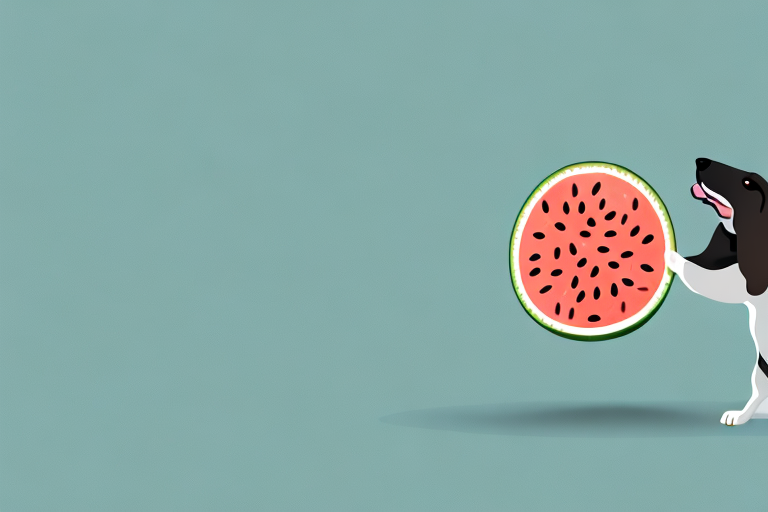Watermelon, a juicy and refreshing fruit, is a favorite summer treat for many people. But, can dogs enjoy this sweet delight too? Let’s find out.
The Nutritional Value of Watermelon
Watermelon is not just a tasty fruit; it’s packed with essential nutrients. It is a great source of vitamins A, B6, and C, all of which are beneficial for dogs. Vitamin A promotes good eye health, Vitamin B6 aids in brain development and function, and Vitamin C boosts the immune system.
Moreover, watermelon is rich in potassium, which helps maintain a dog’s nerve and muscle health. It also contains a good amount of fiber, which aids in digestion. The high water content in watermelon (about 92%) can help keep your dog hydrated, especially during hot summer days.
Is Watermelon Safe for Dogs?
Yes, watermelon is safe for dogs to eat in moderation. It can be a healthy and refreshing treat. However, there are a few precautions you should take before feeding watermelon to your dog.
Firstly, make sure to remove all seeds from the watermelon. Seeds can cause intestinal blockage, especially in small dogs. Secondly, never feed your dog the rind of the watermelon. While it’s not toxic, it can be tough and difficult for dogs to digest, potentially leading to gastrointestinal issues.
How Much Watermelon Can Dogs Eat?
While watermelon is safe for dogs, it should be given in moderation. Too much of any food, even healthy ones, can lead to stomach upset or other health problems. As a rule of thumb, treats should make up no more than 10% of your dog’s daily caloric intake.
For a small dog, a few small pieces of watermelon will be enough. For larger dogs, you can give a few more pieces, but remember to keep it within the 10% treat rule. Always start with a small amount and see how your dog reacts before giving more.
Benefits of Watermelon for Dogs
Feeding your dog watermelon can have several health benefits. As mentioned earlier, the high water content in watermelon can help keep your dog hydrated. This is particularly beneficial during hot summer days when your dog may be at risk of dehydration.
Watermelon is also low in calories and fat-free, making it a great treat for dogs on a diet. The fiber in watermelon can aid digestion and help keep your dog’s bowel movements regular. The vitamins and minerals in watermelon can boost your dog’s overall health.
Potential Risks of Feeding Watermelon to Dogs
While watermelon is generally safe for dogs, it’s not without risks. As mentioned earlier, watermelon seeds can cause intestinal blockage. Even seedless watermelons can contain small white seeds, which can also pose a risk. Therefore, it’s crucial to remove all seeds before feeding watermelon to your dog.
Feeding your dog too much watermelon can lead to diarrhea due to its high fiber and water content. If your dog has diabetes or is at risk, you should limit their intake of watermelon due to its sugar content. Always consult with your vet before introducing a new food into your dog’s diet, especially if your dog has a medical condition.
How to Feed Watermelon to Dogs
Feeding your dog watermelon is easy. Start by cutting the watermelon into small, bite-sized pieces. Make sure to remove all seeds and the rind. You can feed the watermelon pieces directly to your dog or mix them into their regular food for a sweet treat.
For a refreshing summer treat, you can freeze the watermelon pieces and give them to your dog as a cool snack. You can also make watermelon popsicles by blending watermelon (without seeds and rind) and freezing the juice in an ice cube tray.
Conclusion
In conclusion, dogs can eat watermelon. It’s a healthy and refreshing treat that can provide several health benefits. However, it’s important to feed watermelon in moderation and take necessary precautions like removing all seeds and the rind. Always monitor your dog after introducing a new food and consult with your vet if you have any concerns.
FAQs:
Are dogs allergic to watermelon?
No, dogs are generally not allergic to watermelon. It’s a safe and healthy treat when given in moderation, considering it’s free of seeds and rind. However, individual dogs may have different sensitivities, so it’s important to introduce watermelon slowly and watch for any adverse reactions.
Can dogs eat watermelon and cantaloupe?
Yes, dogs can eat both watermelon and cantaloupe. These fruits are nutritious and hydrating, but they should be given in moderation. Ensure to remove all seeds and avoid feeding the rind, as these can be harmful or difficult for dogs to digest.
Can dogs eat watermelon rind?
No, dogs should not eat watermelon rind. While it’s not toxic, the rind is tough and difficult to digest, which can lead to gastrointestinal issues in dogs.
Watermelon’s Nutritional Benefits for Dogs
Vitamins: Watermelon is rich in vitamins A, B6, and C, supporting eye health, brain function, and the immune system.
Potassium: Aids in maintaining nerve and muscle health.
Fiber: Benefits digestion.
Hydration: High water content helps keep dogs hydrated.
